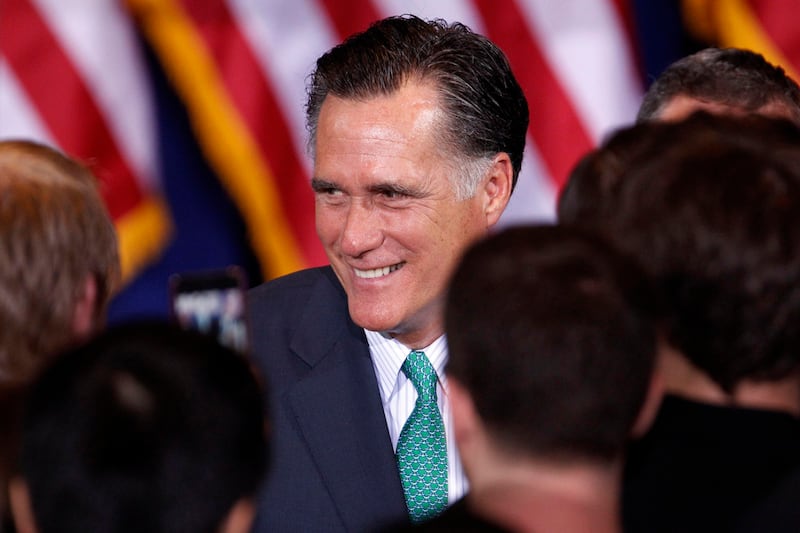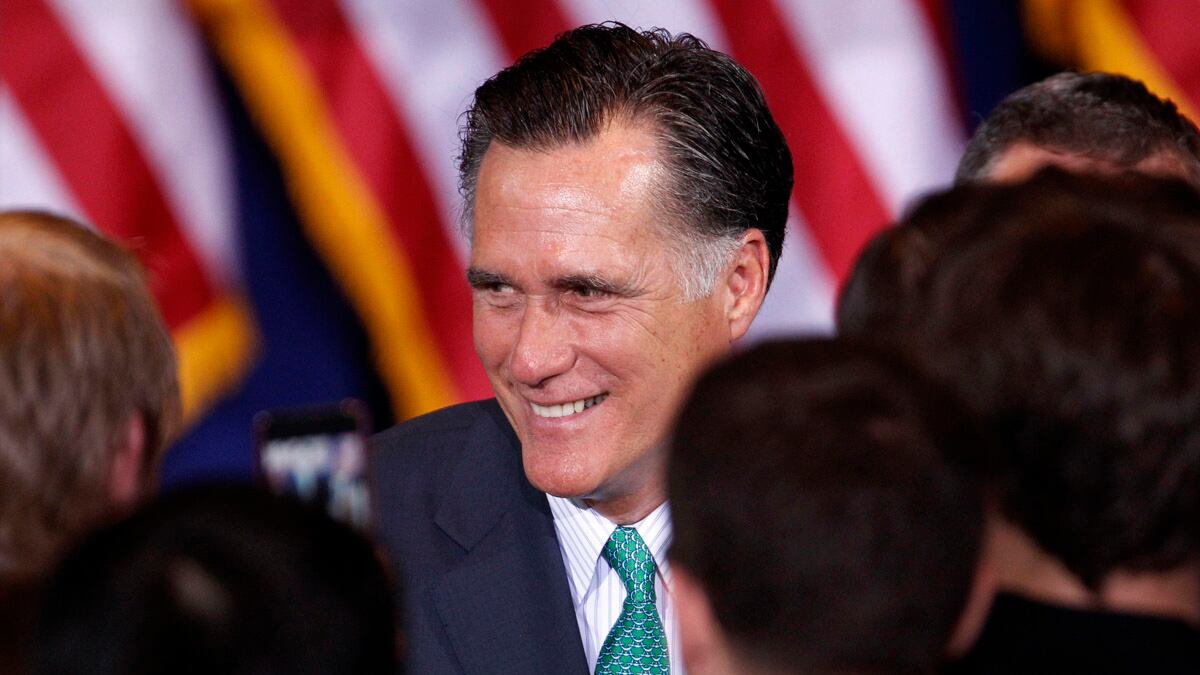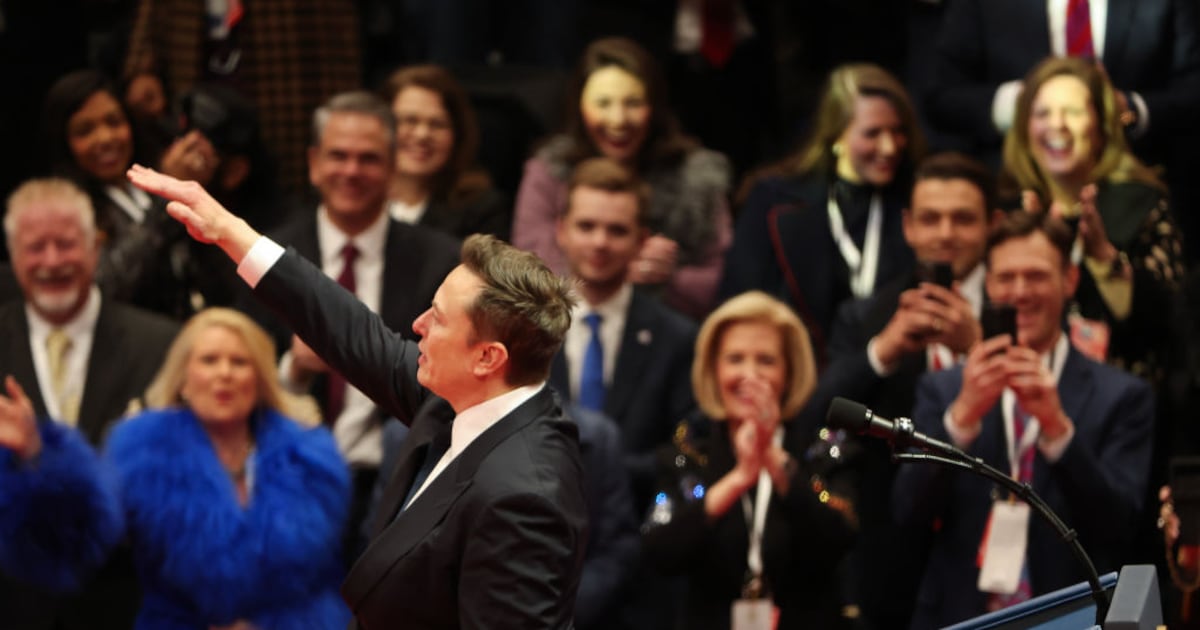The Tea Party appears to be opening its arms to Mitt Romney, even while it holds its nose.

“It is a statistical fact that the numbers favor Mitt Romney,” FreedomWorks Vice President Russ Walker told The Washington Times Tuesday. You can almost feel the excitement! Walker’s organization, which is credited with helping to launch the Tea Party movement, won’t endorse Romney, according to the Times, but it will at the very least stand aside as the GOP’s state and national machinery starts to coalesce around the former Massachusetts governor.
FreedomWorks’ announcement (as well as former Florida Gov. Jeb Bush’s endorsement) is being seen as a coup for Romney, a sign that he might be starting to slough off the years’ worth of enmity directed at him from conservatives who see him as a flip-flopping, heterodox phony.
But the Tea Party’s acquiescence shouldn’t come as a surprise, because Mitt Romney is the very embodiment of the sort of capitalism the movement’s adherents claim to favor. If there’s a problem with the relationship, it’s not with Mitt—it’s with the Tea Party’s lack of coherence.
It is important to understand that despite the portrait painted by some journalists and critics, the Tea Party has always been primarily an economic movement, not a religious or cultural one.
According to a 2011 Pew poll, 57 percent of self-identified Tea Party voters were either unaware of or did not have an opinion on the religious right’s views, while just 42 percent agreed with them. Compare that to the numbers on fiscal issues: overwhelming majorities preferred smaller government (88 percent) and thought government was almost always wasteful (87 percent). Evangelicals may have glommed onto the Tea Party, but economic concerns are what propelled it into the mainstream. In other words: no crash and no bailouts = no Tea Party. It’s not an accident that FreedomWorks’ “Issues” page on its website lists the budget, tax reform, health care, energy, regulation, entitlement reform—there is nary a mention of social issues.
Since the most frequently invoked complaints about Romney’s lack of conservative bona fides involve social issues, there’s no reason the two shouldn’t be able to work things out.
The Tea Party wants to scale back government regulation. Its adherents tend to believe that Obama’s presidency has brought with it an unprecedented level of government overreach and interference, and that the correct role for government vis-à-vis business and capitalism is primarily as a sideline spectator. Romney agrees. Moreover, he’s basically a poster boy for capitalism, boasting far more business experience and money than his rivals.
If the Tea Party can’t accept Romney, it’s because of the fundamental disconnect at the core of the movement. On the one hand, Tea Partiers want to cut taxes, spending, regulation, and government. On the other, they oppose “big bankers” and “Wall Street types” and other folks who, in the real world, are exactly the people who most effectively argue for—and benefit from—cutting taxes and spending and regulation and government.
Hence the rocky relationship. Romney is an “insider,” a slick businessman. When he ran the private-equity firm Bain Capital, Tea Partiers are quick to point out, he bought and sold companies in a ruthless, cost-cutting manner, leading to many lost jobs—a fact Newt Gingrich’s campaign and Romney’s other political enemies have highlighted as they try to hammer in the wedge between Romney and GOP primary voters, foremost among them the Tea Partiers.
But this has been the Tea Party’s problem all along: you can’t have it both ways. You can’t complain about regulations and taxes and the various other accoutrements and annoyances of a large, functioning government, and then turn around and complain when the lack of all that leads to bad results. It makes no sense. If you don’t want people to suffer at the whims of the Bain Capitals of the world, you need some sort of system in place to prevent it.
Romney spokeswoman Andrea Saul hit the nail on the head in an interview with The New York Times: “It’s puzzling to see Speaker Gingrich and his supporters continue their attacks on free enterprise,” she said. “This is the type of criticism we’ve come to expect from President Obama and his left-wing allies at Moveon.org.”
Exactly. Romney is a capitalist through and through. He believes in making money, in building wealth, and in the government not standing in the way—even for the sake of alleviating suffering or leveling the playing field. He’s exactly what Tea Partiers want, so it’s high time they accept him as one of their own.






